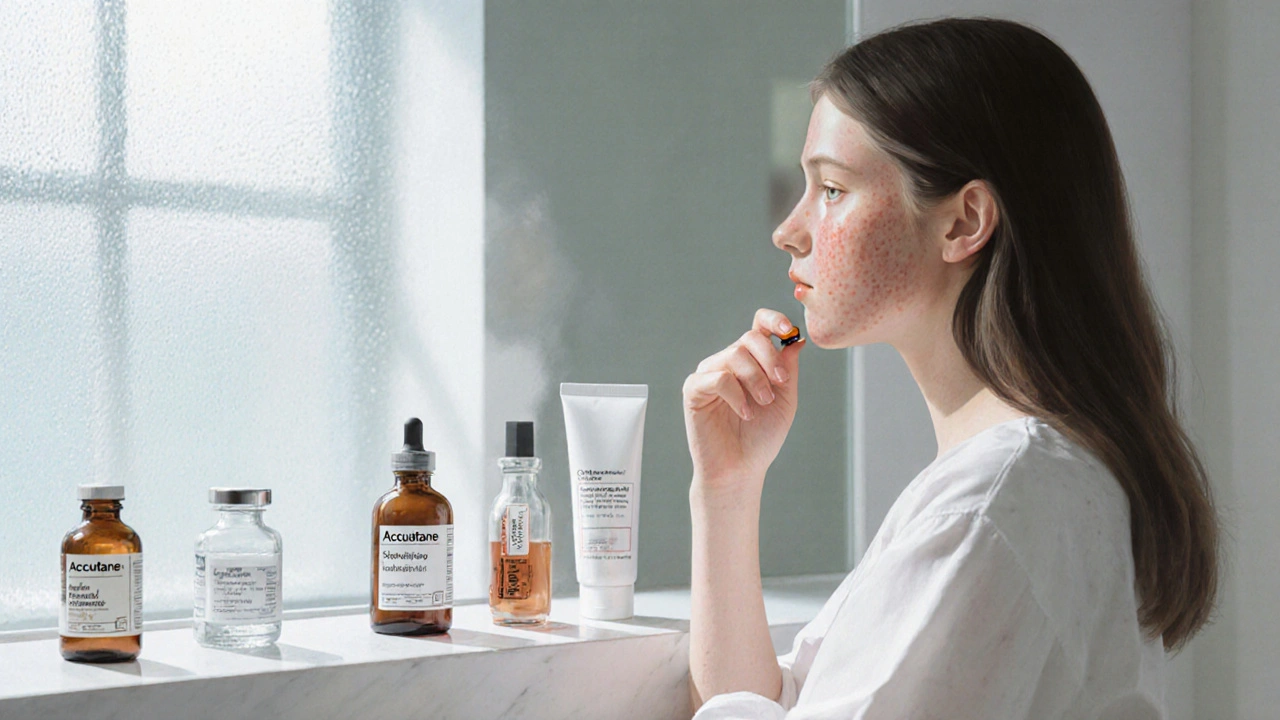Oral Retinoids: What They Are and Why They Matter
When working with Oral Retinoids, synthetic vitamin A derivatives taken by mouth to treat skin disorders and certain cancers. Also known as systemic retinoids, they are powerful tools but need careful handling.
One of the most common oral retinoids is Isotretinoin, a potent oral retinoid prescribed for severe acne. It works by shrinking oil glands, reducing inflammation, and normalizing skin cell turnover. Because of its strength, Oral Retinoids often become the go‑to option when topical treatments fail.
Key Relationships and Considerations
Acne vulgaris, the most common skin condition that can cause painful breakouts drives much of the demand for isotretinoin and other retinoids. The link is clear: severe or cystic acne often requires systemic therapy, and oral retinoids provide that depth of action. At the same time, the Teratogenic risk, the potential to cause birth defects if taken during pregnancy heavily influences prescribing practices. Doctors must verify pregnancy status, enforce strict contraception, and monitor patients closely.
Beyond acne, oral retinoids are used for conditions like psoriasis, certain leukemias, and even some precancerous lesions. The common thread is that these drugs target cell growth and differentiation, which can be a double‑edged sword. Monitoring liver enzymes, lipid profiles, and mood changes becomes part of the standard care plan. When patients understand why these labs matter, compliance improves.
Side‑effects such as dry skin, cheilitis, and photosensitivity are frequent, but most are manageable with moisturizers, lip balms, and sunscreen. Some clinicians recommend supplementing with omega‑3 fatty acids or vitamin E to soothe skin and protect against oxidative stress. The key is to personalize supportive measures—what works for one person may be overkill for another.
Dosing strategies vary. Typical isotretinoin courses start at 0.5 mg/kg/day, gradually increasing to 1 mg/kg/day based on tolerance and response. Treatment usually lasts 4‑6 months, aiming for a cumulative dose of 120‑150 mg/kg to minimize relapse. Patients who stop early often see acne return, so setting realistic expectations up front is vital.
Psychological effects deserve attention, too. While most users experience stable mood, a small subset reports depressive symptoms. Regular check‑ins, open communication, and involving mental‑health professionals when needed create a safety net. The goal is to balance the drug’s efficacy with the patient’s overall well‑being.
Finally, the legal landscape shapes how oral retinoids are dispensed. In many countries, isotretinoin requires a special program—think iPLEDGE in the US—where both prescriber and patient sign off on pregnancy‑prevention steps. Understanding these requirements helps avoid delays and ensures patients stay on track.
All these pieces—clinical use, safety monitoring, side‑effect management, and regulatory compliance—form a cohesive picture of oral retinoids. Below you’ll find articles that dive deeper into each aspect, from dosing guides to real‑world patient tips, giving you a full toolbox to navigate this powerful class of medications.
Accutane (Isotretinoin) vs Alternatives: Pros, Cons & Best Choices
Compare Accutane (isotretinoin) with common acne alternatives, see efficacy, side‑effects, and how to pick the right regimen for severe acne.
© 2026. All rights reserved.

